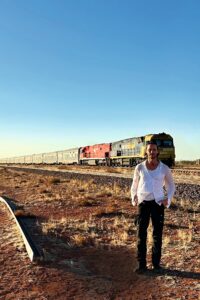The FIRE Movement: Balancing Financial Independence and Wellbeing
3 min read
In the heart of the American financial zeitgeist, a movement whispers promises of liberation from the 9-to-5 grind, proposing a radical new blueprint for those daring enough to rethink their relationship with money. This paradigm, known as the Financial Independence Retire Early (FIRE) movement, has ignited a fervent following. But what does it truly entail to live a life unfettered by conventional work years before the traditional retirement age? Through the lens of Gwen Merz’s journey, we delve into the core of FIRE, exploring its principles, pitfalls, and the potent message of reassessment it brings to personal finance.
The Pillars of FIRE
The FIRE movement is built on a foundation of extreme savings and investment, aiming to amass a nest egg large enough that its returns can cover living expenses indefinitely. Followers of FIRE advocate for a minimalist lifestyle, slashing expenses to the bare essentials to accelerate their journey towards financial freedom. Central to this philosophy is the calculation of the ‘FIRE number,’ a financial milestone where one’s savings are 25 times their annual expenses. Achieving this number is seen as the ticket to early retirement, free from the constraints of mandatory work.
Yet, the movement is not solely about cutting back or living frugally without purpose. It’s a radical reevaluation of what brings true happiness and fulfillment. Many, like Merz, embark on this path with the dream of reshaping their lives, only to find that the journey itself prompts a deeper contemplation on the cost of financial independence versus quality of life.
The Human Cost of Financial Freedom
Gwen Merz’s story is a testament to the double-edged sword that the FIRE movement can be. Starting in 2014, Merz dedicated herself to the principles of FIRE, saving an astonishing 75% of her income from her career in IT. Her strategies were emblematic of the FIRE ethos: house hacking to reduce living expenses, eschewing social outings like concerts, and even rethinking traditional dating to save money. However, this relentless pursuit of financial independence began to take a toll on her wellbeing. The stringent budgeting and lifestyle restrictions, once liberating, started to feel more like shackles, leading to a decline in her happiness and mental health.
In a striking pivot, Merz chose to scale back her savings dramatically to 10% of her income, redirecting her focus towards her personal wellbeing. This shift underscores a critical conversation within the FIRE community about the balance between achieving financial goals and maintaining a quality of life that fosters joy and fulfillment.
Starting the FIRE: Every Journey is Personal
The allure of the FIRE movement lies in its promise of freedom, but Gwen Merz’s experience illuminates the nuanced reality that financial independence doesn’t equate to a one-size-fits-all formula for happiness. As individuals calculate their FIRE numbers and strategize on how to achieve them, the movement encourages a personalized approach. It’s not merely about reaching a financial goal but understanding what that goal means for one’s life and wellbeing.
For those intrigued by the prospect of retiring early, the journey towards FIRE begins with an honest assessment of spending habits, a willingness to make necessary lifestyle changes, and, perhaps most importantly, a flexible mindset that values happiness as much as financial security. Merz’s story is a powerful reminder that while the destination of financial independence is compelling, the path to get there is deeply personal, and wellbeing should always be part of the equation.
In the evolving narrative of the FIRE movement, the dialogue is shifting from purely financial metrics to a broader consideration of what it means to live a fulfilled life. As more individuals like Gwen Merz share their experiences, the movement matures, offering a more balanced view that champions financial freedom while acknowledging the intrinsic value of happiness and mental health. The essence of FIRE, it seems, is not just to retire early but to live well.
Discover more from Slow Travel News
Subscribe to get the latest posts sent to your email.



